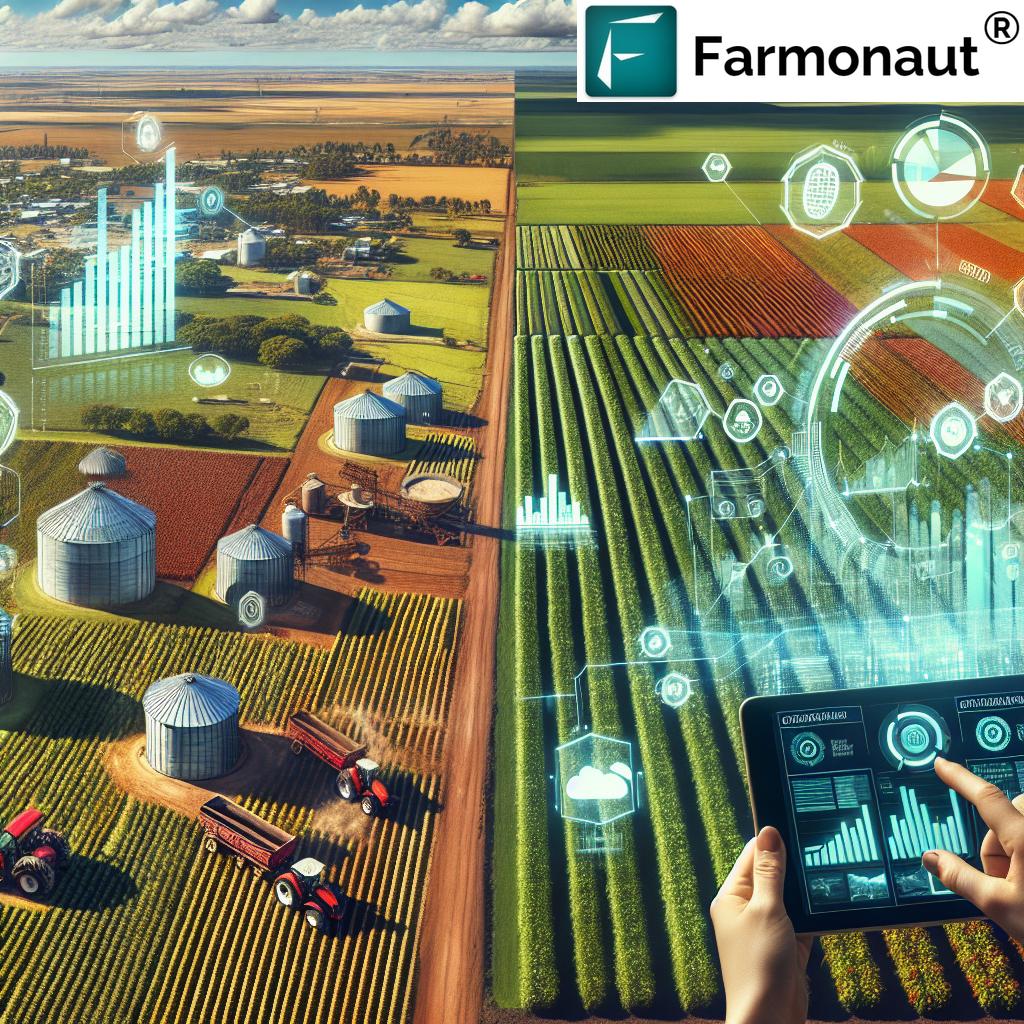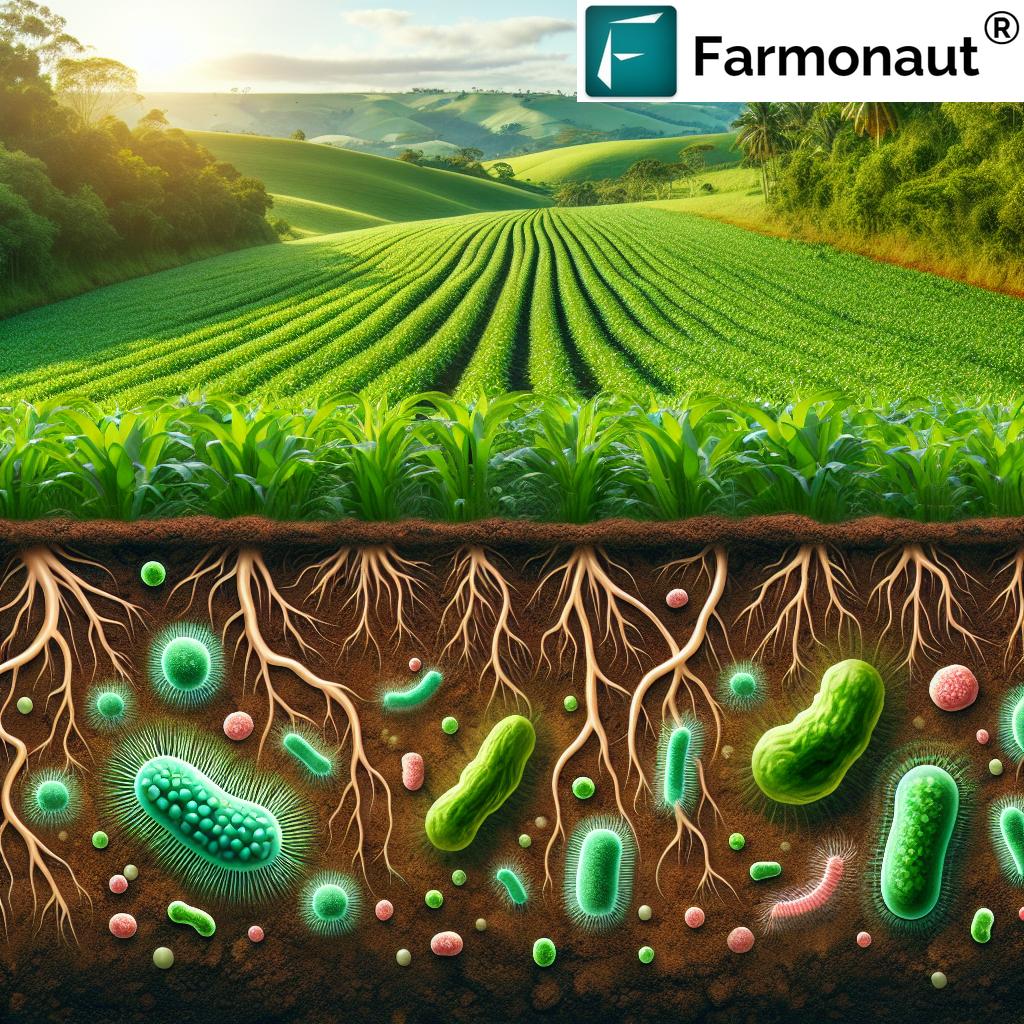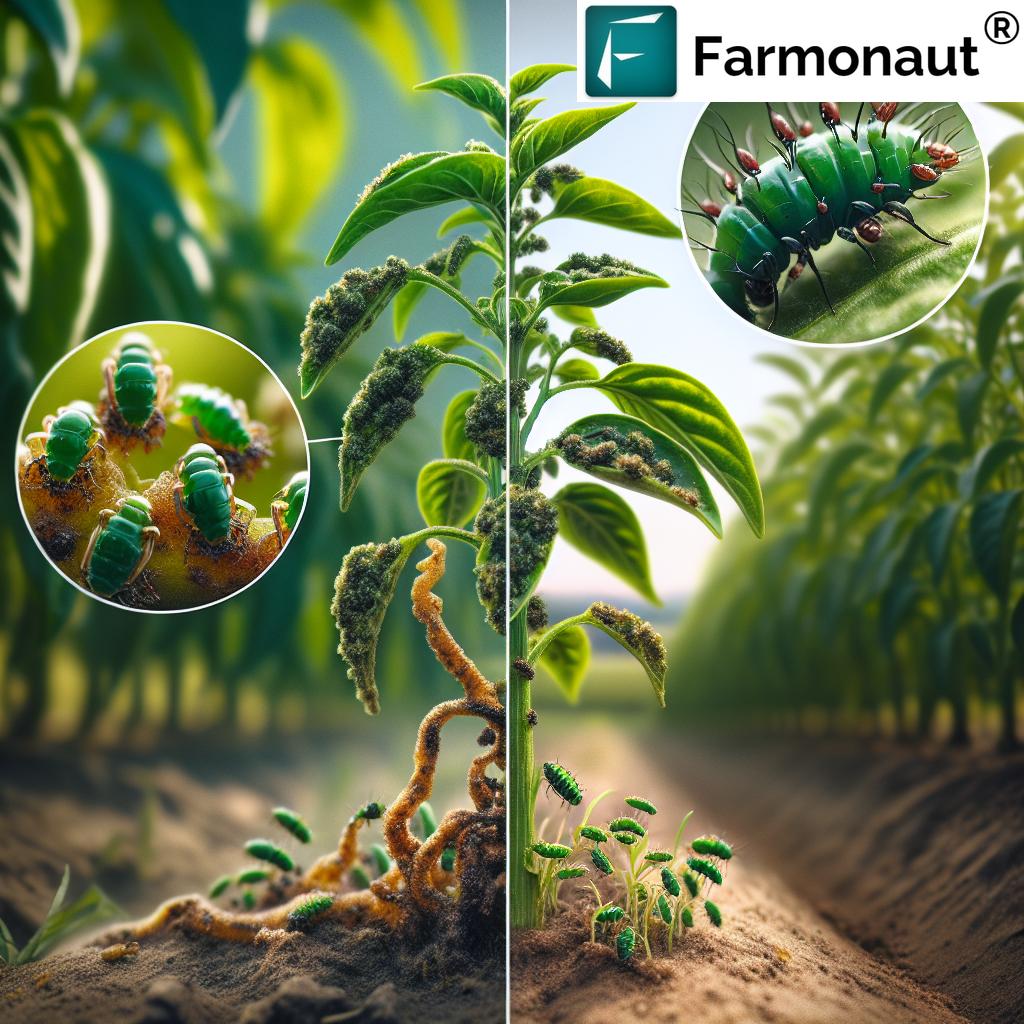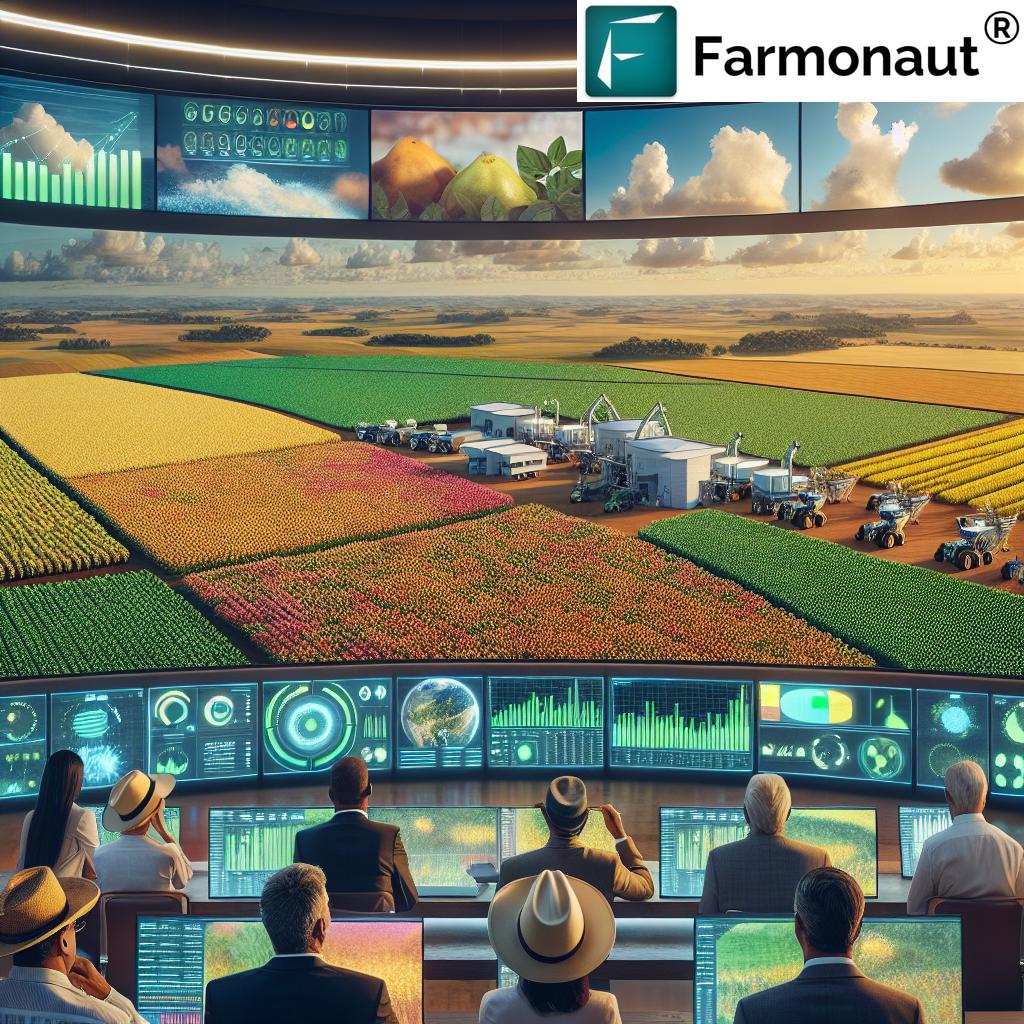Brazil Leads Global Sustainable Agriculture: New Law Revolutionizes Bio-Inputs for Eco-Friendly Farming
“Brazil’s Law 15.070/2024 covers 100% of bio-input lifecycle, from production to waste disposal, revolutionizing sustainable agriculture.”
In a groundbreaking move that positions Brazil at the forefront of sustainable agriculture practices, President Luiz Inacio Lula da Silva has sanctioned Law 15.070/2024. This comprehensive framework is set to revolutionize the country’s approach to agricultural innovation, with a sharp focus on eco-friendly farming methods. As we delve into the intricacies of this new legislation, we’ll explore how it’s poised to transform the agricultural landscape not just in Brazil, but potentially on a global scale.
Understanding the Scope of Law 15.070/2024
The new law establishes a detailed framework for the use of bio-inputs in agriculture and aquaculture throughout Brazil. But what exactly are bio-inputs, and why are they so crucial for sustainable agriculture practices?
- Bio-inputs: Materials or processes derived from biological sources
- Used in cultivation, processing, or storage of agricultural, aquatic, or forestry products
- Provide a healthier alternative to traditional chemical inputs
- Facilitate better crop growth, pest control, and disease management
By focusing on these eco-friendly alternatives, Brazil is taking a significant step towards minimizing the environmental impact of its agricultural sector while promoting healthier and more sustainable farming practices.
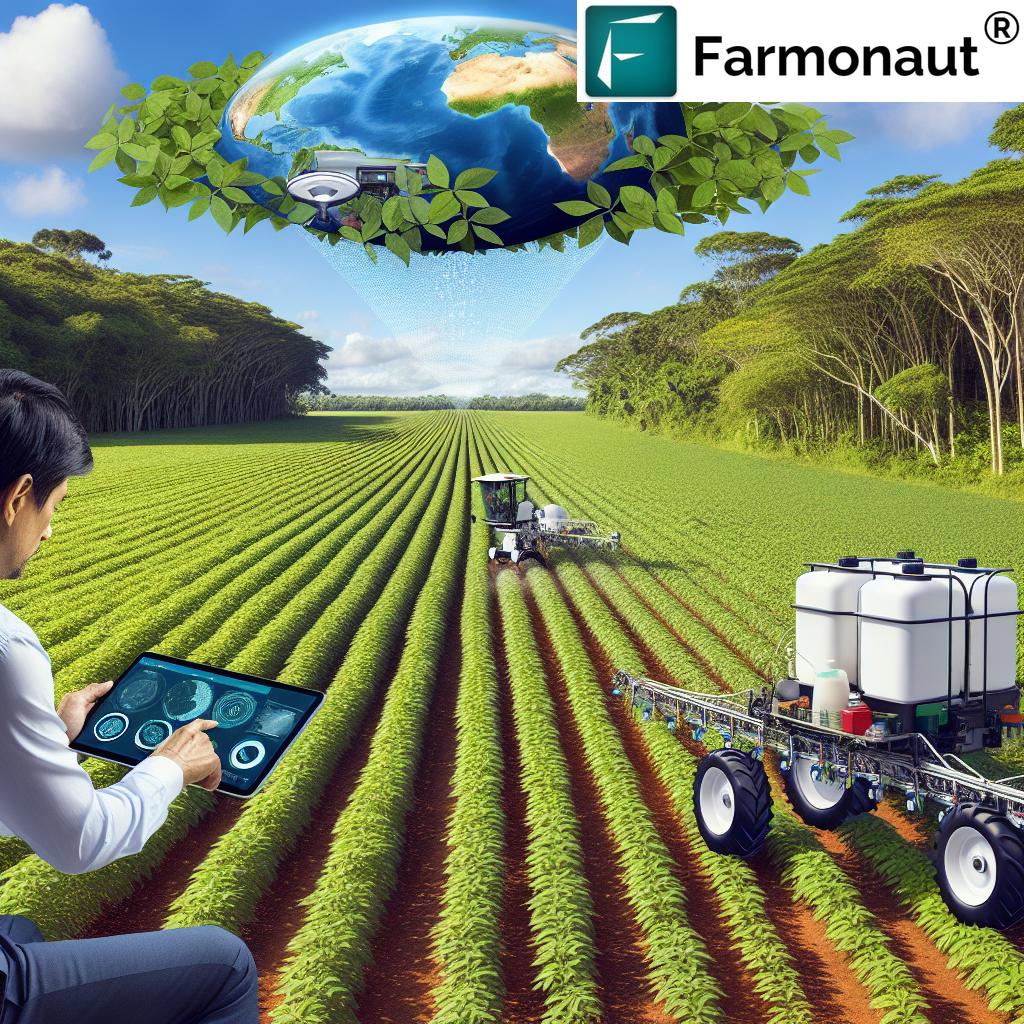
The Comprehensive Nature of Law 15.070/2024
One of the most striking aspects of this new legislation is its all-encompassing approach. It covers every stage of the bio-input lifecycle, ensuring a holistic and sustainable approach to agricultural practices.
- Production
- Import and export
- Registration
- Commercialization
- Usage
- Inspection
- Storage
- Waste disposal
This extensive framework aims to ensure the safe and effective use of bio-inputs across various sectors, establishing clear protocols that promote accountability and transparency in agriculture and aquaculture.
Revolutionizing Agricultural Research and Development
A key component of Law 15.070/2024 is its emphasis on research and development in the field of sustainable agriculture. By incentivizing innovation, Brazil aims to become a global benchmark for food security solutions.
- Promotion of research into new bio-input alternatives
- Development of sustainable aquaculture techniques
- Exploration of novel agricultural inputs
This focus on R&D is crucial for the continued evolution of eco-friendly farming methods and could potentially lead to groundbreaking discoveries in the field of sustainable agriculture.
The Role of Technology in Sustainable Agriculture
As we move towards more sustainable agricultural practices, the role of technology becomes increasingly important. Farmonaut’s cutting-edge remote sensing technology complements the efforts outlined in Law 15.070/2024, offering farmers valuable insights for optimizing their operations.
- Satellite-based crop health monitoring
- AI-driven farm advisory systems
- Blockchain-based traceability solutions
These technological advancements, when combined with the use of bio-inputs, create a powerful synergy that can significantly enhance the sustainability and efficiency of agricultural practices.
“Brazil aims to become a global leader in food security solutions, potentially impacting millions of farmers worldwide.”
Impact on Various Aspects of Agriculture
Law 15.070/2024 is set to have far-reaching effects on multiple facets of the agricultural industry. Let’s explore some of the key areas that will be impacted:
Disease Management
The use of bio-inputs can significantly improve disease management in crops. By promoting natural resistance and reducing the reliance on chemical pesticides, farmers can maintain healthier crops while minimizing environmental impact.
Packaging and Transportation
The law also addresses the packaging and transportation of bio-inputs, ensuring that these eco-friendly products are handled and delivered in a manner that maintains their efficacy and safety.
Waste Disposal
Proper disposal of agricultural waste is crucial for environmental protection. The new legislation provides guidelines for the safe and responsible disposal of bio-input waste, further enhancing the sustainability of farming practices.
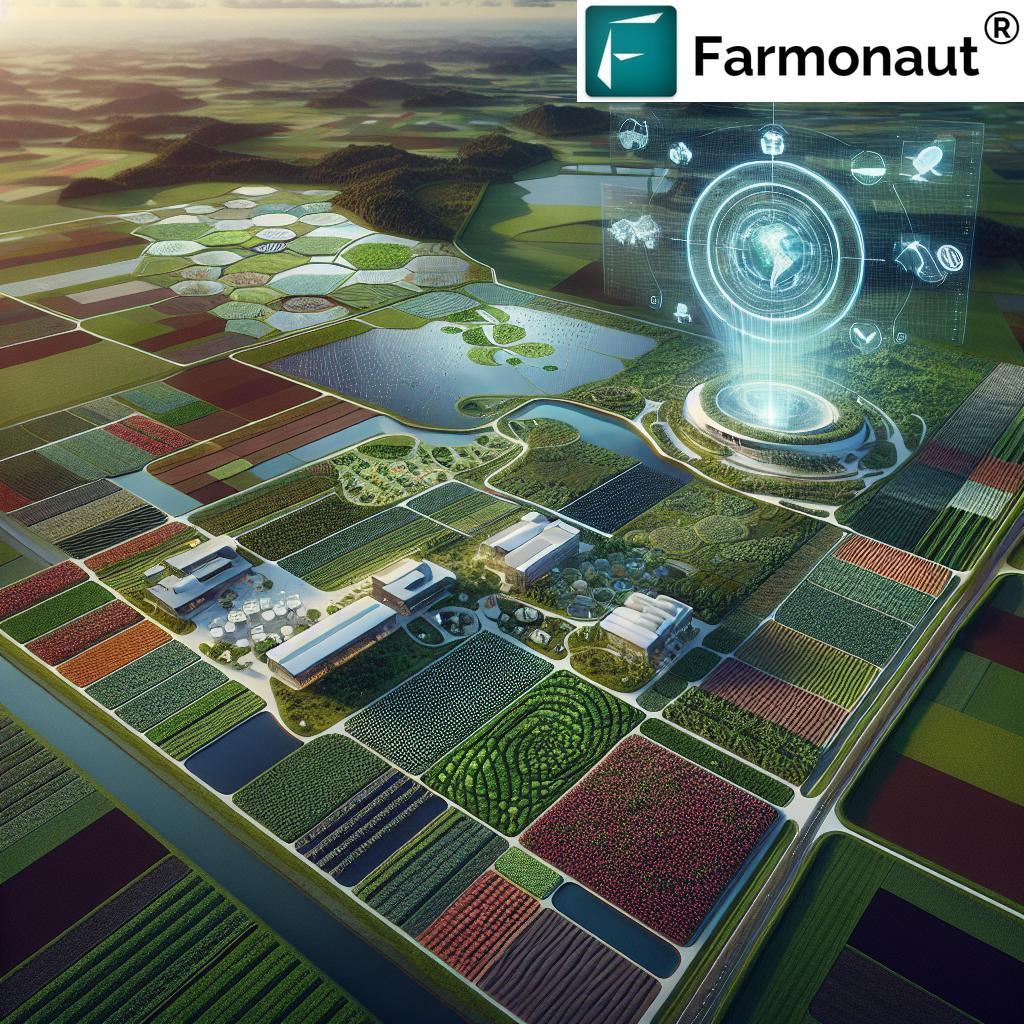
The Potential for Sustainable Innovation
By creating a supportive regulatory environment for bio-inputs, Brazil is opening the door to a new era of sustainable innovation in agriculture. This could lead to the development of:
- New bio-based fertilizers
- Eco-friendly pest control solutions
- Innovative crop management techniques
The potential for groundbreaking discoveries in this field is immense, and could potentially reshape the future of farming not just in Brazil, but globally.
Brazil as a Global Leader in Sustainable Agriculture
With the implementation of Law 15.070/2024, Brazil is positioning itself as a global leader in sustainable agricultural practices. This move could have significant implications for international trade and agricultural policies worldwide.
- Setting new standards for eco-friendly farming
- Influencing global agricultural policies
- Potential for increased exports of sustainably produced goods
As other countries look to Brazil’s example, we may see a global shift towards more sustainable and environmentally responsible farming practices.
The Role of Technology in Implementing Law 15.070/2024
As Brazil embarks on this revolutionary journey towards sustainable agriculture, the role of technology becomes increasingly crucial. Farmonaut’s advanced satellite-based farm management solutions are at the forefront of this technological revolution, providing farmers with the tools they need to implement the new law effectively.
- Real-time crop health monitoring
- AI-based advisory systems
- Blockchain-based traceability
- Resource management tools
These technologies enable farmers to make data-driven decisions, optimize their use of bio-inputs, and ensure compliance with the new regulations.
Key Components of Brazil’s Law 15.070/2024 for Sustainable Agriculture
| Component | Description | Potential Impact |
|---|---|---|
| Bio-input Regulation | Comprehensive framework for production, storage, and use of bio-inputs | Ensures safety and efficacy of eco-friendly agricultural inputs |
| Research Incentives | Promotes R&D in sustainable agriculture and bio-inputs | Fosters innovation and development of new eco-friendly farming solutions |
| Sustainable Aquaculture | Guidelines for eco-friendly aquaculture practices | Reduces environmental impact of fish farming and promotes sustainable seafood production |
| Waste Management | Protocols for proper disposal of agricultural waste | Minimizes environmental pollution and promotes circular economy in agriculture |
| Remote Sensing Technology | Integration of satellite-based farm management solutions | Enhances precision agriculture and optimizes resource use |
The Future of Farming: Eco-Friendly and Sustainable
As we look towards the future, it’s clear that the agricultural industry is at a turning point. The implementation of Law 15.070/2024 in Brazil marks a significant step towards a more sustainable and environmentally responsible approach to farming.
- Reduced reliance on chemical inputs
- Improved soil health and biodiversity
- Enhanced food security
- Mitigation of agriculture’s impact on climate change
By embracing bio-inputs and sustainable practices, we’re not just changing how we farm – we’re reshaping our relationship with the environment and securing a healthier future for generations to come.
Embracing Technology for Sustainable Agriculture
As we transition towards more sustainable agricultural practices, the role of technology becomes increasingly crucial. Farmonaut’s suite of tools is designed to support farmers in this transition, providing valuable insights and data-driven solutions.
Access Farmonaut’s tools:
Frequently Asked Questions
- What are bio-inputs?
Bio-inputs are materials or processes derived from biological sources used in the cultivation, processing, or storage of agricultural, aquatic, or forestry products. - How does Law 15.070/2024 promote sustainable agriculture?
The law establishes a comprehensive framework for the use of bio-inputs, regulating their production, storage, and use, thereby promoting more eco-friendly farming practices. - What role does technology play in implementing this law?
Technologies like Farmonaut’s satellite-based farm management solutions provide farmers with valuable data and insights to optimize their use of bio-inputs and comply with the new regulations. - How might this law impact global agriculture?
By setting new standards for sustainable agriculture, Brazil’s law could influence global agricultural policies and practices, potentially leading to a worldwide shift towards more eco-friendly farming methods. - What are the potential benefits of using bio-inputs?
Bio-inputs can improve crop health, reduce reliance on chemical pesticides, enhance soil quality, and minimize agriculture’s environmental impact.
Conclusion: A New Era of Sustainable Agriculture
Brazil’s Law 15.070/2024 marks the beginning of a new era in sustainable agriculture. By promoting the use of bio-inputs and establishing a comprehensive framework for their regulation, Brazil is setting a new standard for eco-friendly farming practices. This groundbreaking legislation, combined with cutting-edge technologies like those offered by Farmonaut, has the potential to revolutionize the agricultural industry, not just in Brazil, but globally.
As we move forward, it’s clear that the future of farming lies in sustainable, environmentally responsible practices. By embracing these changes, we can ensure food security, protect our environment, and create a more sustainable future for generations to come.










